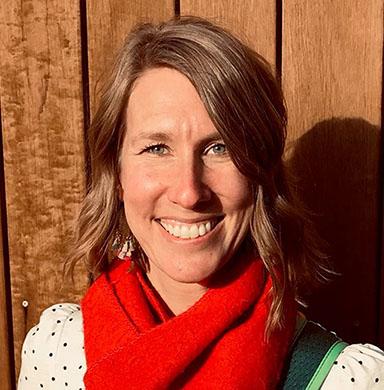Liberal Arts Degrees at DU: Leveraging Transferrable Skills Toward Meaningful Employment
An intelligence analyst at Lockheed Martin. A business analyst at DaVita Kidney Care. A marketing manager for a nonprofit. A technology company payroll specialist. An educational equity coordinator at the Colorado Department of Higher Education.
These and a variety of other jobs were filled by DU College of Arts, Humanities & Social Sciences (CAHSS) graduates who leveraged the power of their liberal arts degrees — from criminology and psychology to English and art history — by connecting the dots to transferrable employment skills acquired through their education.
The value of a liberal arts degree doesn't always speak for itself the way an accounting or engineering degree does, according to Carolyn Sommers, associate director of Career & Professional Development and career advisor for CAHSS and undeclared students.
“But in a beautiful way it becomes up to the student to become the author of their own story and learn how to convey what their religious studies or psychology degree, for example, instilled in them in terms of the skills they bring to understanding our world,” she said.
Employers in diverse industries including law, government, journalism, marketing, public relations, education and health care all recognize the multi-faceted skills liberal arts majors bring to their organizations including:
Understanding the Human Condition
A liberal arts education enables students to synthesize and address the challenges of human experience through various lenses. Religious Studies majors, for example, “investigate how different traditions impact the global society and how different ideologies shape perspectives on sense of self and international engagement,” Sommers said.
The liberal arts endow students with an ability to understand cultures from multiple perspectives, an ability critical to the world of business, government and nonprofits “because you’re not working in isolation, you’re interfacing with communities of people through some kind of service or product,” Sommers said.
Liberal arts majors know how to ask the right questions and listen with empathy in a way that builds trust and reveals the needs of the people they're serving and thereby target services, programs and products to meet those needs.
Finding and Evaluating Information
The in-depth research a liberal arts degree requires teaches students how to find the right information and check its validity, a skill especially crucial in today’s world of rampant misinformation and disinformation. Students pursuing degrees in the humanities, sciences and social sciences learn how to locate data and where it came from, expose source biases and discern between sources to confirm information accuracy.
Storytelling
Liberal arts students learn “how to create an arc of communication through written words, oral communication and visual communication,” Sommers said, citing the examples of Emergent Digital Practices and Art & Art History.
“Whether you’re interfacing with a digital media form or art or photography, you’re communicating to influence audiences to think and feel a certain way.”
Making Meaningful Connections
A liberal arts degree requires students to dig deep to unearth and recognize patterns, relationships and connections between issues and disciplines, and anchor them in historical context. How did we get where we are today? Why are we experiencing these ongoing issues of racism, immigration and poverty?
“Our liberal arts students learn to notice and track these patterns enabling them to find innovative approaches to solving real-world problems,” Sommers said.
In addition to helping CAHSS students connect the dots to the skills they've acquired through their liberal arts education and how to best convey their story to prospective employers, the Career & Professional Development office offers quarterly job fairs and informal employer-student meet-and-greet opportunities.
Career & Professional Development also provides online support through its Pioneer Careers Online (PCO), exclusively accessible to students and alumni. The platform allows students to schedule one-on-one career coaching appointments and access a job and internship board listing more than 1,200 postings updated daily as well as an events tab highlighting workshops, alumni panels and employer visits.
The DU Career Network links students to alumni available to consult with them about resumes, networking, interviewing and job postings and help them figure out what to do with their degrees.
“What you major in does not directly correlate to what you will do after college,” Sommers said. “We help students understand and create a narrative about the skills they’ve learned, who they are, what lights them up, and explore the many employment paths their degrees can lead to.”



